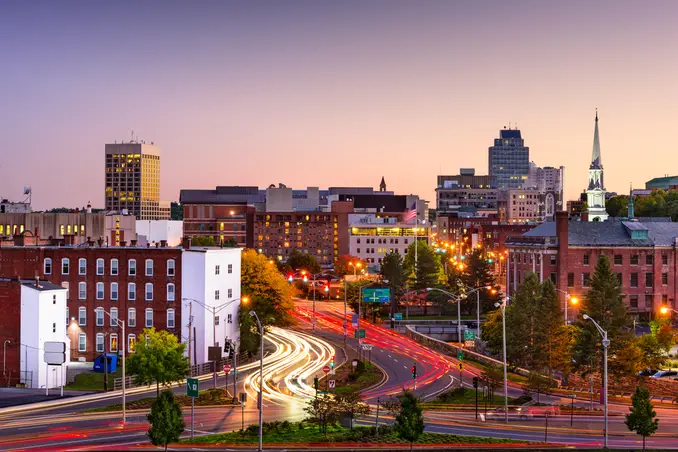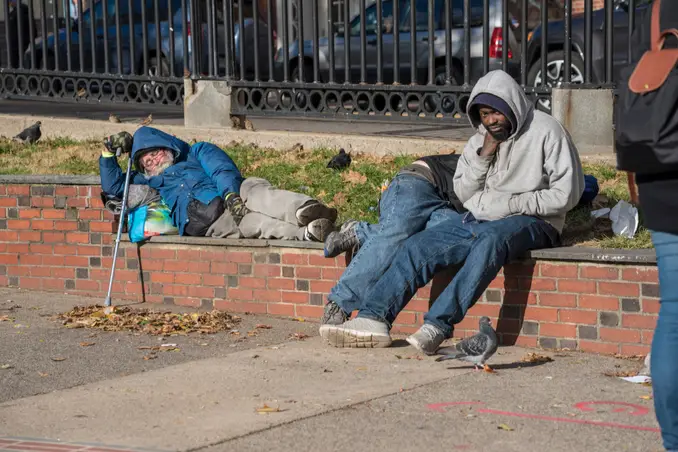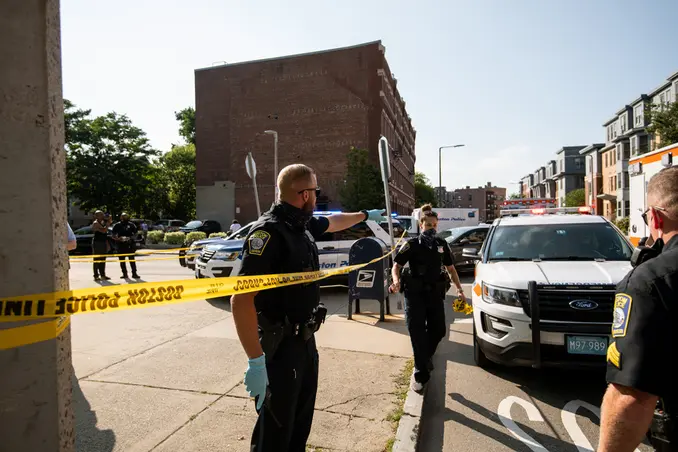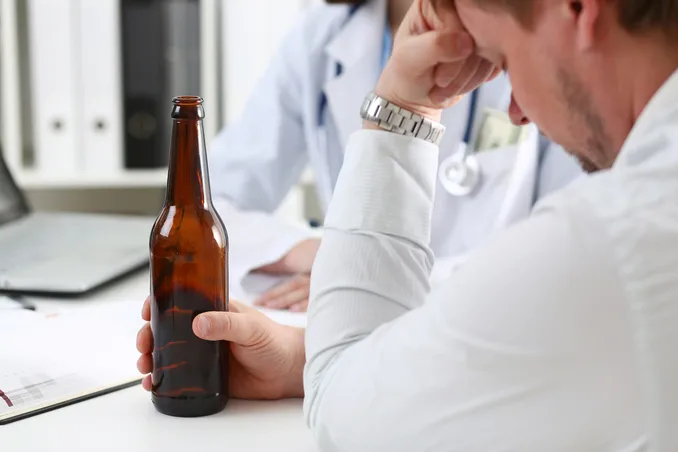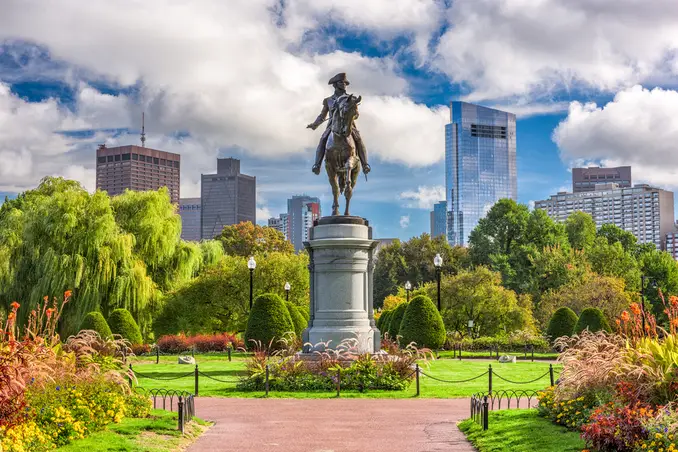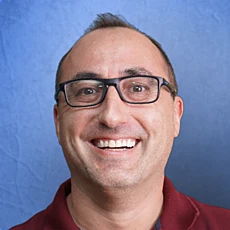Locate Addiction Treatment Centers: Massachusetts
Table of Contents
- Locate Addiction Treatment Centers: Massachusetts
- Statistics on Alcohol and Drug Addiction in Massachusetts
- Facts About Substance Abuse Treatment: Massachusetts
- The Need for Opioid Addiction Treatment Centers in Massachusetts
- The Rise of Fentanyl in Massachusetts Communities
- Treatment for Addiction in Massachusetts
- Alcohol Rehab Centers in Massachusetts
- Treatment for Dual Diagnosis in Massachusetts
- Massachusetts’ Alcohol and Substance Abuse Laws
- Addiction Treatment Laws in Massachusetts
- What Is the Cost of Rehab in Massachusetts?
- Using Insurance For Massachusetts Alcohol and Drug Rehab Centers
- Resources for Finding a Drug Rehab in Massachusetts
- How to Select an Addiction Treatment Center in Massachusetts
- Choosing a Massachusetts Rehabilitation Center Made Easy
- Use Find Addiction Rehabs as Your Recovery Resource for the Bay State
Every year, over 1.5 million Massachusetts people use illegal substances, with another half-million abusing alcohol. As a result, from 2008 to 2017, these pollutants were responsible for roughly 8% of resident fatalities in the Commonwealth. With stats like these, Massachusetts alcohol and drug rehab centers are vital to combatting the
Furthermore, problems usually associated with substance addiction, such as mental illness and homelessness, have become more prevalent in recent years. Massachusetts had a significantly higher rate of major depressive episodes among kids and serious mental illness among adults than the national average between 2013 and 2017. The Commonwealth has a significantly higher rate of homeless residents than the national average of 17 per 10,000 residents in 2018, with 29 per 10,000 residents.
Addiction is in the Lives of Every Massachusetts Resident
Much of New England struggles with both widespread alcohol and opiate addiction, and Massachusetts is no exception. Three out of four people in Massachusetts know someone who has abused prescription painkillers within the past five years. Also, over sixteen percent regularly binge drink. The state has taken bold measures in an attempt to curb addiction. Some municipalities offer rehab and immunity to those who turn in their drugs, including heroin and pain pills. Massachusetts has among the most lethal overdose rates in the nation. Three out of four overdoses result in death.
In response, legislators have voted to more carefully track painkiller prescriptions and give out anti-overdose drugs for free. These steps put Massachusetts at the forefront of the fight against opiate addiction. Also, Massachusetts has been the testing ground for many new laws on alcohol. “Happy hour” promotions have been made illegal, and hosts and business owners can be held liable for damages if someone has had too much to drink at their parties or establishments.
At Find Addiction Rehabs, we are dedicated to providing resources, information, and resources for finding top Massachusetts alcohol and drug rehab centers.
The Opioid Epidemic in Massachusetts
For years, news outlets, newspapers, and magazines have covered the opioid issue in an attempt to educate the public and provide solutions. Despite pharmacists writing fewer prescriptions in recent years, Massachusetts has felt the effects of the opioid epidemic, as the number of overdose deaths has gradually grown. The state prescribed 65.9 opioids for every 100 citizens in 2011. In 2016, for every 100 people, 47 prescriptions were written.
These approaches have not yet resulted in a reduction in overdose deaths. The figure increased from 1,017 in 2011 to 1,724 in 2016. In response to the problem, rehabilitation facilities and helplines are available.
Statistics on Alcohol and Drug Addiction in Massachusetts
Opioids remain the most serious hazard in Massachusetts, as they are in the rest of New England and the Northeast. The National Institute on Drug Abuse published the most recent data on MA substances in 2018.
Statistics on Drugs in Massachusetts
In 2019, Massachusetts public health officials recorded 2,214 drug overdoses. Opioids were involved in 88 percent of drug overdose deaths in Massachusetts the previous year.
During the COVID-19 pandemic in 2020, the Massachusetts Department of Public Health provided 13,000 Narcan kits to high-risk regions in an effort to reverse opioid overdose deaths.
Facts About Substance Abuse Treatment: Massachusetts
The Massachusetts Bureau of Substance Abuse Services published data on prior-year treatment admissions in 2018. What they discovered about people seeking treatment in Massachusetts is as follows:
- Addiction treatment was sought by 80,896 people.
- 109,002 patients, including repeat hospitalizations, were admitted for treatment.
- In the previous year, 47 percent of those getting treatment acknowledged injecting narcotics.
- The most commonly used drug in treatment admissions (41 percent) was alcohol, followed by heroin (22 percent )
The Need for Opioid Addiction Treatment Centers in Massachusetts
In 2014, there were 104,233 overall primary treatment admissions for substance abuse in Massachusetts. The percentages below show the most commonly abused substances among those admitted:
- Heroin
- Alcohol
- Opioids, both prescribed and non-prescribed
- Cocaine/Crack
- Additional substances (including methamphetamine, stimulants, and benzodiazepines)
The revival of heroin has had a huge impact on towns throughout Massachusetts, particularly in the Boston area. The counties of Plymouth, Bristol, Barnstable, Dukes, and Essex, as well as the adjacent districts, have been particularly hard hit. Every year, each county records between 20 and 24 deaths per 100,000 people.
The vast majority of heroin in the state originates in New York, where it is traded worldwide via the seaports of Boston and New York City. In Massachusetts, there were a lot of people hooked to oxycodone-based pain relievers, which are considered a gateway drug because they typically lead to heroin addiction.
The Rise of Fentanyl in Massachusetts Communities
Fentanyl is a potentially fatal narcotic that originally became popular in the San Francisco Bay Area and throughout California but has since spread nationwide and has contributed to the spike in overdose deaths to record levels.
Fentanyl is a powerful, fast-acting painkiller that, when misused, causes a euphoric “high” akin to heroin. It contains up to 100 times the potency of morphine. Despite the fact that fentanyl is typically laced with heroin, the number of people addicted to pure fentanyl is growing.
Fentanyl was associated with 66 percent of recorded opioid-related overdose deaths in Massachusetts in the first half of 2016, up from 57 percent in the same time the previous year. Fentanyl in its purest form, as well as heroin laced with fentanyl, is frequently less expensive than pure heroin. As a result, fentanyl is exceedingly addictive and has a high risk of addiction.
Treatment for Addiction in Massachusetts
Residents in Massachusetts, particularly those in the greater Boston area, are addicted to heroin and prescription opioids. Over half of all opioid-related overdoses include heroin, with the strong opioid Fentanyl accounting for a third. During the previous five years, the state has invested approximately $500 million on the development of addiction treatment clinics. The majority of treatment centers are state-funded detox and inpatient institutions as a result of increased government financing.
Despite more treatment options, clinic positions come and go swiftly. Surrounding states, such as New Hampshire, rely on Massachusetts’ treatment facilities. Addiction treatment in neighboring states is frequently insufficient, if not impossible to obtain. Detoxification, PHP, IOP, and residential treatment are all available in Massachusetts. To discover more about the treatment centers, click on their names.
Alcohol Rehab Centers in Massachusetts
In this beach state, alcohol consumption is prevalent across all demographics. This is a rather common occurrence in the Northeast. Across all age groups, Massachusetts has a higher rate of binge drinking than nearly half of the rest of the country. A third of those admitted to Massachusetts treatment institutions were there for alcoholism. Detoxification from alcohol is a rare occurrence. The vast majority of people seek treatment only in outpatient clinics or through AA.
This predilection for outpatient care is influenced by two factors. To begin, many persons in need believe that the only way to get help is to experience withdrawal symptoms. If they do acknowledge addiction as an illness, they frequently do nothing more than attending meetings. Second, insurance coverage in Massachusetts is restricted, particularly for dual diagnosis treatment.
Treatment for Dual Diagnosis in Massachusetts
The great majority of residents in Massachusetts have access to government-sponsored health insurance. This means that nearly everyone in the state will have better access to mental health services. Many therapeutic programs, on the other hand, lay little emphasis on dual diagnosis. In most cases, Massachusetts insurance only covers detox and outpatient treatment. As a result, most community-based treatment programs do not accept dual diagnoses.
Addiction treatments are typically unavailable in public mental health recovery centers. At the moment, Massachusetts’ proposed legislation might go a long way toward bringing the state up to speed with the rest of the country. Currently, almost all dual diagnosis therapy is provided outside of the state. If you or a loved one requires dual diagnosis therapy, you may have no choice but to fly out of state.
Treatment Options in Massachusetts Alcohol and Drug Rehab Centers
Approximately 0.5 percent of the Massachusetts population receives therapy each year. More than half of those who sought help were heroin users. Many heroin addicts become addicted while taking prescribed pain relievers. Many people who become addicted to pain relievers, on the other hand, do not seek help until they start using heroin. Only about one-tenth of all heroin admissions are for pain relievers. This discrepancy causes a number of problems.
Massachusetts has a fatal overdose rate that is double the national norm due to the availability of heroin laced with Fentanyl. The national average for opioid-related deaths per 100,000 persons is more than tenfold. In the first half of the decade, Massachusetts was also a center of “pill mills.” As a result, considerable quantities of Fentanyl remain on the market, where it is commonly used to cut heroin.
Addiction treatment alternatives include the following:
Detoxification
Detoxification is the first stage of drug or alcohol treatment, and it helps clients get the substance out of their systems. Individuals undergoing detoxification are continuously monitored by rehab specialists to guarantee their safety. This monitoring allows people who are recovering to receive help if their symptoms become too severe.
Inpatient Rehabilitation
Inpatient therapy for any disease, according to the UMPC, necessitates a hospital stay. When it comes to drug treatment, these facilities are specifically designed to help clients prevent relapse into an addictive lifestyle. Additionally, inpatient treatment enables the recovering individual to be carefully monitored and assisted with counseling to help them overcome their drug usage.
Outpatient rehabilitation
Outpatient therapy is a type of treatment in which the recovered individual does not stay in the institution but rather visits on a regular basis for organized visits. These visits enable them to interact with counselors and become a part of a group that is also undergoing the recovery process. This support network is critical in supporting individuals in overcoming a drug or alcohol addiction completely.
Outpatient Intensive Care (IOP)
IOP is a transitional stage between inpatient and outpatient care during which the client is admitted for a duration of several hours at a time to receive intensive therapy. Although it is time intensive, it is considered an outpatient therapy approach because clients do not stay at the treatment facility.
Medication-Assisted Therapy
Medication-assisted therapy (MAT) in Massachusetts provides medically monitored treatment services to people battling with opioid or alcohol addiction.
MAT programs will almost probably include some or all of the following:
- Medications that are approved by the FDA, such as disulfiram or buprenorphine
- Therapy and counseling
- Education
- Assistance with job placement and/or training
Long-term and short-term MAT programs, as well as participation in a range of inpatient and outpatient treatment programs, may be available.
Aftercare Assistance
Addiction is a chronic, lifelong disorder that necessitates ongoing care even after treatment is completed. Aftercare programs provide a variety of resources and help, which may include:
- Rehabilitation with housing programs
- Professional services
- Education with life skills training
- Support groups for self-help
- Management of cases and continued outreach
A case manager can connect clients and families to community resources, ongoing support networks, and other long-term healing activities.
Massachusetts’ Alcohol and Substance Abuse Laws
Every year, roughly 11,000 people are arrested in Massachusetts for drug-related offenses such as the sale, possession, trafficking, cultivation, and manufacturing of any illegal narcotic. For drug possession, the state imposes penalties that may include fines, jail time, or a combination of the two. Drug charges have a variety of consequences, depending on the facts of the occurrence and the judge’s discretion.
Massachusetts classifies illegal narcotics into four categories: A, B, C, and D. Class A narcotics are the most addictive, and possession carries the worst punishments. Class E drugs, on the other hand, have a far reduced risk of addiction. While Class E offenses are rarely imprisonable, they may result in probation or substance abuse treatment.
Recreational and Regulations Regarding Medical Marijuana
While recreational marijuana usage is now legal in Massachusetts, it is also qualified as medically needed for specific ailments, including the following:
- Amyotrophic Lateral Sclerosis (ALS)
- Cancer
- Gluten sensitivity
- Glaucoma
- HIV/AIDS
- Hepatitis C
- Multiple Sclerosis (MS)
- Parkinson’s Disease (PD)
- Other medical issues as indicated by the client’s doctor
Medical marijuana is governed in a variety of ways. Every two months, a person may not possess more than ten ounces of marijuana; however, modest amounts of marijuana may be produced at home. If the client is unable to get the drug from a state-licensed dispensary owing to physical or medical limitations, he or she may appoint a personal caregiver over the age of 21 to act on their behalf.
Addiction Treatment Laws in Massachusetts
Substance abuse has the power to sever families, damage economies, and endanger public safety. As a result, Massachusetts has implemented a number of preventive measures that regard addiction as a disease that may be treated rather than a criminal that must be punished.
An Act Concerning Substance Abuse Treatment, Education, and Prevention (STEP Act)
The STEP Act, a multi-tiered program, was enacted in Massachusetts to assist citizens affected by the state’s opioid prescription drug epidemic.
The STEP Act limits opiate prescriptions to a 72-hour supply.
Prescription opiate dosage limits assist to keep extra, unused prescription medicine out of the criminal drug market. Additionally, persons who are addicted or in recovery from addiction may request in their medical records that opiates not be provided to them. A client must receive a substance misuse examination by a mental health specialist before being discharged from the emergency room following an opioid-related overdose.
Furthermore, the STEP Act addresses the threat of substance misuse in Massachusetts’ public schools. Students in public schools across the state are now expected to go through a verbal screening to see if they have a substance abuse issue or are at risk of acquiring one. A school nurse or a health expert conducts the screenings.
Prescription Awareness Tool in Massachusetts (MassPAT)
For many years, Massachusetts has had a prescription drug monitoring program in place (PDMP). Prescription drug monitoring systems are databases that track all medications prescribed by a doctor or pharmacist in order to avoid drug addiction.
The state’s initial program, on the other hand, was slow and difficult to administer. MassPAT, a more streamlined and user-friendly PDMP, was deployed in Massachusetts in August 2016. MassPAT is intended to alert doctors to clients who are at risk of developing an addiction. It also communicates with the online PDMPs of other states to avoid prescription duplication.
Previously, the PDMP in Massachusetts would only update its database with new clients and prescriptions every seven to ten days. This would give “doctor shoppers” (those who visit various doctors in search of new drug prescriptions) enough time to get their fix without being detected. MassPAT refreshes databases every 24 hours, resulting in higher prescription drug crackdowns — and fewer substance addiction issues.
What Is the Cost of Rehab in Massachusetts?
According to a 2018 study, the majority of residential drug treatment programs in Massachusetts accept private or public insurance:
- In Massachusetts, 77% of addiction treatment clinics accept private health insurance.
- In Massachusetts, 61% of treatment facilities accept Medicare.
- Eighty percent of drug recovery programs accept Medicaid.
People without insurance can get help from Massachusetts treatment facilities that offer sliding price scales and alternate payment choices, like state-funded rehab clinics and free rehabs.
For example, some facilities accept Medicaid and MassHealth, as well as a variety of big commercial insurance plans sponsored by huge corporations such as Aetna, AmeriHealth, and United Healthcare.
Furthermore, we may be able to help clients who do not have insurance with financial choices such as private payments, payment plans, and so on.
Using Insurance For Massachusetts Alcohol and Drug Rehab Centers
In Massachusetts, private insurance, MassHealth, and Medicare can all be used to help cover the expense of addiction treatment. To begin, it is critical to understand the scope of your insurance.
To find out if you are insured for addiction treatment in Massachusetts, call our helpful phone representatives now and we can let you know the details of your coverage. Even if we can’t place you with one of our providers, we’re more than happy to provide resources and assist each client with options and resources, for Mass rehabs and across the country.
The extent to which your insurance will cover therapy is determined by your plan’s specifications and the providers who are “in-network” with your plan. Using an in-network provider lowers your total out-of-pocket costs.
In Massachusetts, the following insurance companies may provide coverage for addiction:
- Aetna
- Massachusetts Blue Cross Blue Shield
- Beacon Health Care Services
- Cigna
- Harvard Pilgrim Health Care Services
- The State of Health in New England
- Humana
- Magellan
- MassHealth
- TriCare
- Tufts University Health Insurance
- UnitedHealthcare
If You Do Not Have Insurance?
If you do not have health insurance, several Massachusetts treatment providers offer state-funded services to uninsured clients. This means that you may be able to receive certain treatment options for free or at a reduced cost.
Look for providers who carry the BSAS symbol or are reimbursed by the Massachusetts Department of Public Health to find state-funded treatment choices.
Resources for Finding a Drug Rehab in Massachusetts
If you live in Massachusetts and are battling a drug or alcohol addiction, you can get help from a variety of local organizations.
Massachusetts Bureau of Substance Abuse Services: This bureau provides information about local treatment and prevention programs in your area, as well as links to other useful websites for those seeking help.
National Alliance on Mental Illness (NAMI) Chapter in Massachusetts: For Massachusetts individuals dealing with addiction or other mental diseases, NAMI offers a goldmine of information. This website can help you find legal resources, reliable healthcare providers, and housing assistance, among other things. They also have a crisis line at (877) 382-1609. When you dial this number, you will be asked to enter your zip code before being connected to your local emergency services provider.
The Massachusetts Department of Mental Health and Addiction Services funds the Recover Project, a peer-to-peer rehabilitation support facility. Connecting with others who have recovered from addiction and substance misuse will help you overcome emotional hurdles and find hope for a lifetime of sobriety, with all the successes and symbols of recovery that you have rightfully earned.
What Does Addiction Treatment In Massachusetts Look Like?
Addiction therapy is a multifaceted approach that combines medical and clinical care with additional services to assist you in developing life skills and coping mechanisms. It may include therapy, counseling, and medication, all of which may be used in tandem to help you quit drugs and live a healthy lifestyle.
The treatment procedure, referred to as a comprehensive continuum of care, may include the following steps:
- Evaluation of substance abuse
- Throughout the withdrawal period, medical detoxification is used.
- People who require inpatient or residential rehabilitation
- Recuperation on the sidelines
- Pharmacologically assisted treatment
- Aftercare/continuing care assistance
Remember that no single type of therapy is beneficial for everyone, so your treatment plan will be personalized to your specific needs. Consult with a skilled therapist to determine which therapies are right for you.
Where Can I Find Massachusetts Alcohol and Drug Rehab Centers?
Massachusetts is rich in history and a popular tourist destination all year. While Massachusetts has a diverse range of drug rehabilitation programs, larger cities with a higher population tend to draw more addiction treatment clinics. The cities of Boston, Worcester, Springfield, Cambridge, and New Bedford are all densely populated. In 2018, there were 414 treatment centers.
How to Select an Addiction Treatment Center in Massachusetts
The Bureau of Substance Addiction Services regulates addiction treatment in Massachusetts (BSAS). This agency can help you find treatment, as well as license treatment experts and rehabilitation programs, track substance use data, and develop policies relating to substance abuse treatment.
In addition, in Massachusetts, you can get counseling by:
- Contact a treatment facility resource center, such as our services at Find Addiction Rehabs
- Making advantage of the Massachusetts Substance Abuse Helpline.
- Use the SAMHSA’s Behavioral Health Treatment Locator.
Keep the following in mind while selecting an addiction treatment program in Massachusetts:
- Accreditation by state or national regulatory authorities confirms that therapy meets a high quality of care.
- Customized treatment regimens are created for you based on an assessment of your needs.
- Services whose effectiveness has been shown by research and scientific investigation.
- Certified Alcohol and drug counselors (LADCs) who have passed the BSAS’s stringent state licensing process.
- Participation of family members in treatment, counseling, and education.
- Treatment for co-occurring disorders that treat both addiction and mental health issues at the same time.
- A comprehensive continuum of care that includes medical detox, residential treatment, and aftercare support.
- Change from one form of care to another.
Other factors to consider when looking for treatment include the program’s duration, alternative funding sources, and the degree of care appropriate for your treatment goals and history of substance use disorder.
Where Can I Get Addiction Treatment in Massachusetts?
Speak with a treatment center admissions representative about programs ranging from detox to residential care, simply by calling our team at Find Addiction Rehabs now.
Your questions will be answered, and a treatment or intake specialist will conduct a fast evaluation. If you contact a treatment specialist, you will be admitted to a treatment facility as soon as possible if your circumstances merit it.
If you’re looking for public treatment resources, another option is to contact The Massachusetts Substance Use Helpline, a state-funded program that assists in locating treatment covered by the state health department. No matter your level of resources, addiction treatment is widely available for Massachusetts drug rehabs.
Choosing a Massachusetts Rehabilitation Center Made Easy
In Massachusetts, the most considerable struggle for those suffering from addiction isn’t getting into or getting covered for treatment. Their struggle is merely deciding to attend treatment before an overdose. Much of the Massachusetts treatment model has relied on someone hitting “rock bottom” before getting help. In recent years, this model has created many problems. This way of thinking may have contributed to high overdose deaths throughout the state. There is no reason to wait for an overdose to find a facility. Find out how you can get help and a Massachusetts drug rehab or alcohol treatment center today.
The process of choosing the best drug or alcohol rehab facility in Massachusetts begins with an analysis of your specific circumstances. Since it features around-the-clock supervision, a medically supervised detox and accompanying residential facility may be the most effective option if your addiction is severe or has featured chronic relapse in the past. If you’ve only recently been addicted to a substance or are just beginning your recovery journey, an outpatient program or sober living scenario will get you started in the right direction.
Use Find Addiction Rehabs as Your Recovery Resource for the Bay State
Whatever stage of recovery you are in, Find Addiction Rehab has a level of care to meet your needs and goals. Our national network of treatment institutions provides a wide range of programs, from medical detox through aftercare, all of which are supervised and tailored to your specific needs.
Please don’t hesitate to reach out to our compassionate, dedicated recovery representatives to find options in Mass and throughout the country, quickly and confidentially!
Eric R. hails from Maine and does extensive work in the field of behavioral health as both a professional writer and passionate advocate for those suffering. From his own personal encounters with mental illness, he speaks to those seeking healthy relief from depression and anxiety and embraces wellness both personally and professionally. After losing friends and family to the darkness of suicide, Eric aims to educate and inform about the nature of treatment and render it accessible for all those seeking a way out of darkness and despair.

